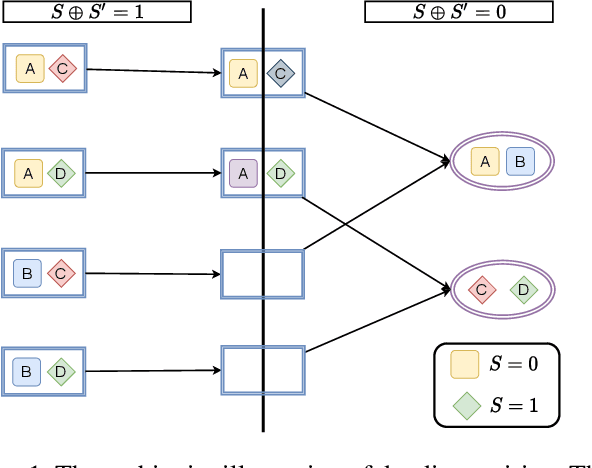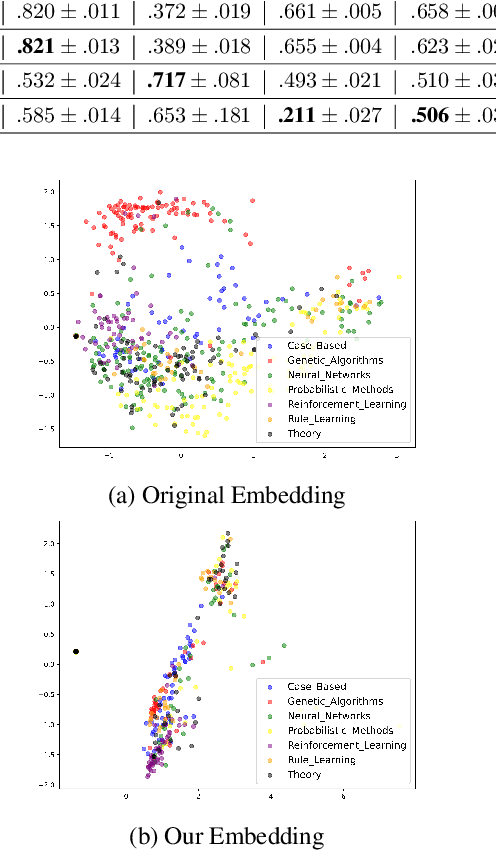Moyi Yang
Decentralized Entropic Optimal Transport for Privacy-preserving Distributed Distribution Comparison
Jan 28, 2023



Abstract:Privacy-preserving distributed distribution comparison measures the distance between the distributions whose data are scattered across different agents in a distributed system and cannot be shared among the agents. In this study, we propose a novel decentralized entropic optimal transport (EOT) method, which provides a privacy-preserving and communication-efficient solution to this problem with theoretical guarantees. In particular, we design a mini-batch randomized block-coordinate descent (MRBCD) scheme to optimize the decentralized EOT distance in its dual form. The dual variables are scattered across different agents and updated locally and iteratively with limited communications among partial agents. The kernel matrix involved in the gradients of the dual variables is estimated by a distributed kernel approximation method, and each agent only needs to approximate and store a sub-kernel matrix by one-shot communication and without sharing raw data. We analyze our method's communication complexity and provide a theoretical bound for the approximation error caused by the convergence error, the approximated kernel, and the mismatch between the storage and communication protocols. Experiments on synthetic data and real-world distributed domain adaptation tasks demonstrate the effectiveness of our method.
Obtaining Dyadic Fairness by Optimal Transport
Feb 09, 2022



Abstract:Fairness has been taken as a critical metric on machine learning models. Many works studying how to obtain fairness for different tasks emerge. This paper considers obtaining fairness for link prediction tasks, which can be measured by dyadic fairness. We aim to propose a pre-processing methodology to obtain dyadic fairness through data repairing and optimal transport. To obtain dyadic fairness with satisfying flexibility and unambiguity requirements, we transform the dyadic repairing to the conditional distribution alignment problem based on optimal transport and obtain theoretical results on the connection between the proposed alignment and dyadic fairness. The optimal transport-based dyadic fairness algorithm is proposed for graph link prediction. Our proposed algorithm shows superior results on obtaining fairness compared with the other pre-processing methods on two benchmark graph datasets.
 Add to Chrome
Add to Chrome Add to Firefox
Add to Firefox Add to Edge
Add to Edge